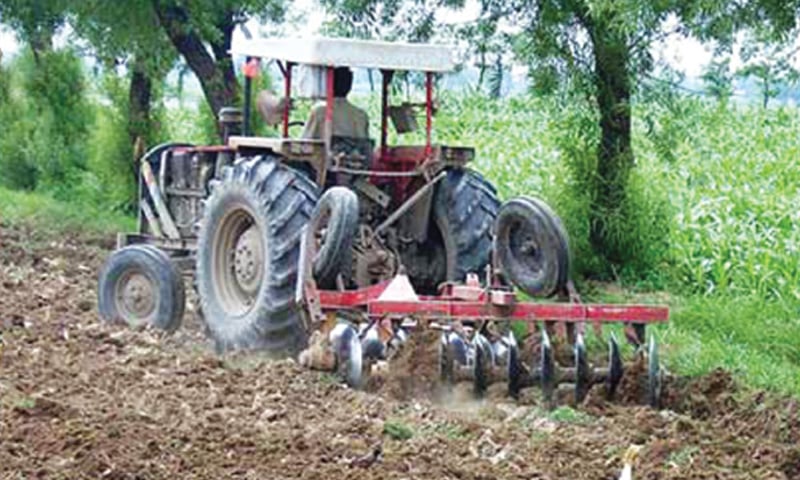KARACHI: After experiencing a dismal FY19, Fiat tractor sales recovered in the first month of the current fiscal year, while Massey Ferguson (Millat) was still in hot waters.
Fiat sold 1,122 units in July versus 814 units in July 2018. In 2018-19, its sales plunged by 35 per cent to 17,993 units.
The sales of Massey Ferguson, which already suffered drop to 32,018 units in FY19 from 42,707 units in FY18, could not recover in July 2019 depicting 1,938 units as compared to 3,006 units.
Despite rise in sales of Fiat in July 2019, its CEO Al Ghazi Tractors Limited, Mohammad Shahid Hussain described the situation as “challenging and difficult.”
“There seems to be a major cash crunch within the farmers’ community” he surmises, “and resultantly they are shying away from investing in mechanization and new tractors in particular.”
Crop output and yields could yet be another reason during the last one year where farmers perhaps are barely surviving to make ends meet and are able to pay only their debts rather than having any surplus. Owing to the struggling economy, every type of economic activity has slowed down and the sentiments are lukewarm, he added.
He said due to a major reduction in demand, the manufacturers of tractors had to curtail their production plans. This curtailment also has a direct bearing on the vendors as well. Vendors employ a much bigger workforce than the manufacturers to keep the wheels of the industry rolling.
“We have not laid off any people as such but our vendors definitely have to take that route since with low order intake from assemblers, the cost to carry the normal level of employment is impossible for cost reasons given the gloomy demand,” Shahid said.
On future sales prospects, “The overall situation will perhaps remain similar till the end of 2,020 unless, the Government is able to afford coming forward supporting the farmers and the industry with some extraordinary measures.”
One of the key challenges currently faced by the tractor industry is accumulation of overdue sales tax refunds amounting to Rs 5 billion which is increasing every month. No refund payments have been made since May 2018 resulting in huge borrowing and large burden of financing cost ultimately.
Al Ghazi CEO said the best strategy under the circumstances is to cut costs and try to feed the market according to the demand. “We also need to remain in the grandfather mode to understand the difficulties being faced by our vendors and support them accordingly to the best of our ability in such difficult times,” he added.
Partial absorption of enhanced input costs and depletion of margins is something which assemblers have to accept currently as a reality to keep the ball rolling, Shahid said.
An official in Millat Tractors Limited (MTL), who asked not to be named, said the company is focusing on exports of tractors to African countries where farm machinery demand is growing.
He said the company has also not fully passed on the impact of rupee depreciation against the dollar to the consumers.
Despite depressed sales and reduced production in the last 13 months, the company has so far not removed any workers and staffers, he tells Dawn. If the sales continue to decline in coming months, the company may have to take some drastic step like off loading staff strength, he feared.
He said future sales would depend on the farmers’ income and crop output especially in sugarcane, cotton, rice, wheat and other crops. Tractor sales also rely on public and private sector construction activities which also remained slow in the last one year.
Country’s agriculture performance during FY19 remained subdued. On the aggregate, the sector grew by 0.85 per cent, much lower than the target of 3.8pc set at the beginning of the year.
Economic Survey 2018-19 attributed under-performance of agriculture sector mainly due to insufficient availability of water which led to a drop in cultivated area and a drop in fertiliser off take. The crops sector experienced a negative growth of 4.43pc. Sugarcane production declined 19.4pc to 67.174 million tonnes, cotton 17.5pc to 9.861m bales and rice 3.3pc to 7.202m tonnes.
Published in Dawn, September 4th, 2019














































